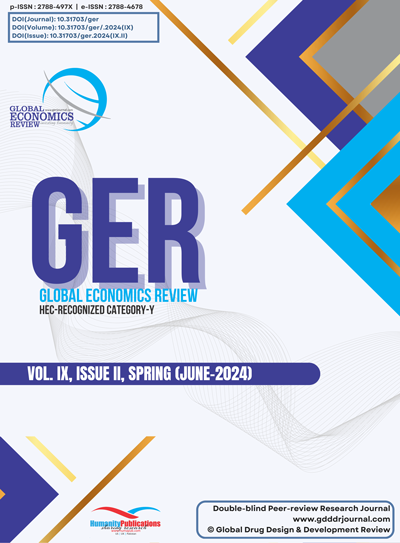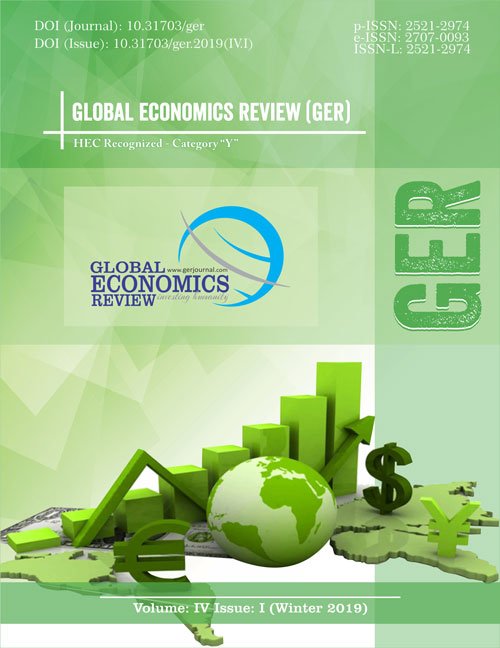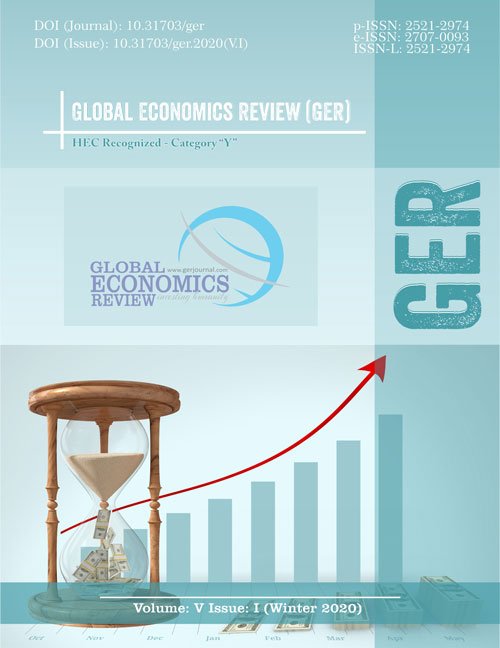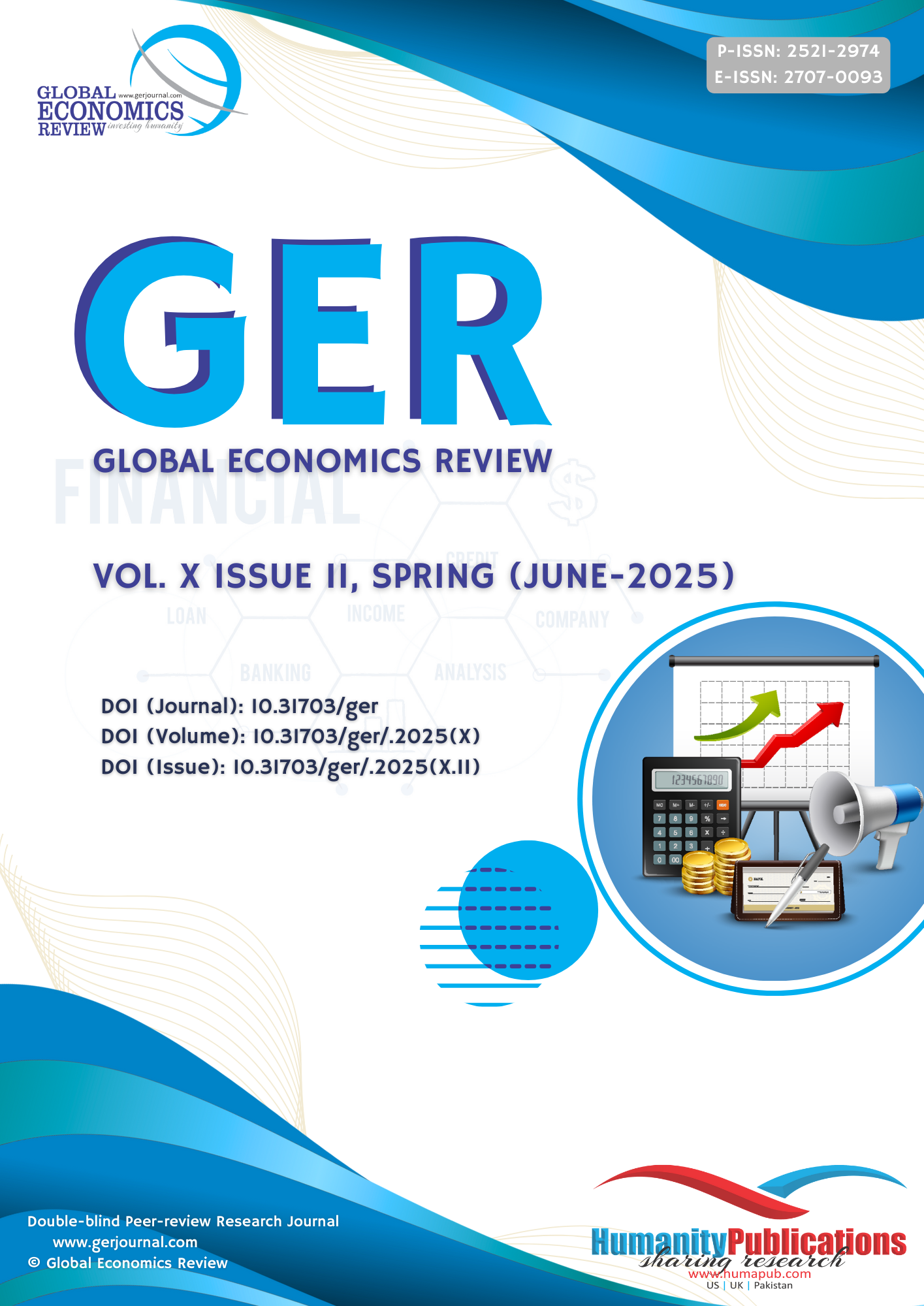Guideline: Covers studies about general economics.
Keywords: None Speciffied
A1 General Economics
A2 Economic Education and Teaching of Economics
A3 Collective Works
Guideline: Covers studies about schools of economic thought from pre-classical to contemporary developments (B1-B3) and current heterodox approaches to various economic issues (B5). Also covers studies about methodology (B4). The categories for B5 were created to accommodate the recent substantial developments in non-mainstream (non-neoclassical) economic approaches to contemporary economic problems. Studies about an economic subject (or subjects) adopting a given heterodox approach should be cross-classified under the appropriate B5 category and also under the appropriate subject category (or categories).
Keywords: History of Economic Thought
B0 General
B1 History of Economic Thought through 1925
B2 History of Economic Thought since 1925
B3 History of Economic Thought: Individuals
B4 Economic Methodology
B5 Current Heterodox Approaches
Guideline: Covers studies about mathematical and quantitative methods, separated from their applications. This separation enables a researcher interested in any of these methods, but not their applications, to search the appropriate literature efficiently. If a given study about these methods also includes applications, it should be cross-classified under the appropriate C category (or categories) and under the appropriate application category (or categories). Studies that apply any known econometric or quantitative method to a particular economic model should not be classified under a C category. For example, a study which uses a well established time series method should not be classified here.
Keywords: Quantitative Methods
C0 General
C1 Econometric and Statistical Methods and Methodology: General
C2 Single Equation Models; Single Variables
C3 Multiple or Simultaneous Equation Models; Multiple Variables
C4 Econometric and Statistical Methods: Special Topics
C5 Econometric Modeling
C6 Mathematical Methods; Programming Models; Mathematical and Simulation Modeling
C7 Game Theory and Bargaining Theory
C8 Data Collection and Data Estimation Methodology; Computer Programs
C9 Design of Experiments
Guidelines:The distinction between microeconomics and macroeconomics has become ambiguous. A study that may be relevant to both microeconomics and macroeconomics is classified under the appropriate categories in D and E, for example a study on the microeconomic foundations of macroeconomics. There are also many subcategories in microeconomics that are closely related to those in L(Industrial Organization). In particular, D2 categories and L2 categories, and D4 categories and L1 categories deal with the same or similar subjects. An operational distinction adopted is that studies emphasizing abstract analysis (which can be empirical) should be classified under appropriate categories in D while those emphasizing operational sides (application and applicability) should be classified under appropriate categories in L. Since such a distinction is not always possible, many studies are cross-classified under both categories. Studies about microeconomic issues in specialized fields, summarily referred to as applied microeconomics, are classified under the appropriate field categories. Studies about financial economics and business finance should be classified under the appropriate G categories. Studies about labor and demographic economics should be classified under the appropriate J categories. Micro-studies about business administration, business economics, marketing, and accounting should be classified under the appropriate M categories. Microeconomic studies pertaining to economic development should be cross-classified under appropriate D categories and under O12 and/or other appropriate O categories. Those studies pertaining to socialist and transitional economies or other economic systems should be cross-classified under appropriate categories in D and P2, P3, or P4. Microeconomic studies at the urban-regional level should be cross-classified under appropriate categories in D and R.
Keywords: Equilibria, Equillibrium, Microeconomics, Rationality, Satisficing, Selfishness, Approximate Equilibria
D0 General
D1 Household Behavior and Family Economics
D2 Production and Organizations
D3 Distribution
D4 Market Structure, Pricing, and Design
D5 General Equilibrium and Disequilibrium
D6 Welfare Economics
D7 Analysis of Collective Decision-Making
D8 Information, Knowledge, and Uncertainty
D9 Micro-Based Behavioral Economics
Guideline: Covers theoretical and empirical studies about the aggregate performance of an economy: output, employment, prices, and interest rates and their determinants. Studies about the microeconomic foundations of macroeconomics that are of substantive interest to micro-economists should be cross-classified here and under the appropriate categories in D. However, cross-classification under categories in D should not be automatic. For example, macroeconomic constructs using the representative agent (the consumer or the firm) should not be cross-classified under categories in D unless they contain some novel microeconomic content. Studies about open economy macroeconomics should be classified under appropriate categories in F4. Macroeconomic studies pertaining to economic development should be cross-classified under appropriate E categories and under O11 and other appropriate O categories if they are relevant to the pertinent macroeconomic studies in general. Those studies pertaining to socialist and transitional economies or other economic systems should be cross-classified under appropriate categories in E and P2, P3, or P4.
Keywords: Aggregate Demand, Aggregate Supply, AS AD, Macrodynamics, Macroeconomics, Macroeconomy
E0 General
E1 General Aggregative Models
E2 Consumption, Saving, Production, Investment, Labor Markets, and Informal Economy
E3 Prices, Business Fluctuations, and Cycles
E4 Money and Interest Rates
E5 Monetary Policy, Central Banking, and the Supply of Money and Credit
E6 Macroeconomic Policy, Macroeconomic Aspects of Public Finance, and General Outlook
E7 Macro-Based Behavioral Economics
Guideline: Covers studies about issues, including policy issues, related to international trade, factor movements, international finance, and open-economy macroeconomics. Studies about member countries of a geographic entity, for example Latin America, or a political and/or economic union that are treated as regions should be included here. They should be cross-classified under the appropriate categories in R1 if they are of interest to urban-regional economists. Studies about international political economy should be classified under the appropriate categories in F5. The F5 categories were established in 2006. Earlier studies were classified under F02, H56, or D74. Note that all categories in F include policy studies. There is no separate policy category in F.
Keywords: Globalization, International, International Relations, Trade
F0 General
F1 Trade
F2 International Factor Movements and International Business
F3 International Finance
F4 Macroeconomic Aspects of International Trade and Finance
F5 International Relations, National Security, and International Political Economy
F6 Economic Impacts of Globalization
Guideline: Covers studies about issues related to various sub-fields in financial economics: general financial markets (both domestic and international) dealing with securities (stocks, bonds, and commodity and other futures); financial institutions and services; and corporate finance and governance. Studies should be cross-classified under the appropriate microeconomic categories if they are based on microeconomic models. Financial economic studies in the context of economic development should be cross-classified here and under O16; those studies related to socialist and transitional economies should be cross-classified here and under P34; and those studies related to other economic systems should be cross-classified here and under P43.
Keywords: Finance, Financial Crisis, Financial Economics, Financial Intermediation, Financial Markets
G0 General
G1 General Financial Markets
G2 Financial Institutions and Services
G3 Corporate Finance and Governance
G4 Behavioral Finance
Guideline: Covers studies about issues mostly related to microeconomic issues in public economics except for the categories in H5 and H6. Studies about macro public finance and policy (fiscal policy, expenditures, finance, taxation) should be classified under E62 and/or E63. Studies should be cross-classified here and under E62 if they are relevant to macro issues.
Keywords: Government, Ramsey Equilibrium, Taxation, Transfer Payments
H0 General
H1 Structure and Scope of Government
H2 Taxation, Subsidies, and Revenue
H3 Fiscal Policies and Behavior of Economic Agents
H4 Publicly Provided Goods
H5 National Government Expenditures and Related Policies
H6 National Budget, Deficit, and Debt
H7 State and Local Government; Intergovernmental Relations
H8 Miscellaneous Issues
Guideline: Covers studies about issues related to health, education, and welfare, the same topics as in H51, H52, and H53, and H75. All the studies about these topics should be classified here. The studies focused on national government expenditures and policies pertaining to these topics should be cross-classified here and under the appropriate categories in H5. Those pertaining to state-local governments should be cross-classified under H75. Studies about the same topics related to economic development should be cross-classified here and under O15 and those related to socialist and transitional economies should be cross-classified here and under P36 (under P46 for other economic systems). Studies about welfare states in the context of capitalist economic systems should be classified under P16.
Keywords: Education, Health, Welfare
I0 General
I1 Health
I2 Education and Research Institutions
I3 Welfare, Well-Being, and Poverty
Guideline: Covers studies about macro- and micro-issues in demographic economics and studies about microeconomic issues in labor economics. Studies about macroeconomic labor markets should be classified under E24, and should be cross-classified here only if they are relevant to labor economics in general. Studies about regional labor markets and regional population should be classified under R23 and should be cross-classified here if they are relevant to these topics in general. Studies about the same labor and demographic topics pertaining to economic development should be cross-classified here and under O15; those pertaining to socialist or transitional economies are cross-classified under P23 (P42 for other economic systems). Studies about regional labor markets and regional population should be classified under R23 and should be cross-classified here if they are relevant to these topics in general. Studies about issues in personnel economics, an economic field included recently, should be cross-classified under the appropriate categories in J2- J8 and the appropriate categories in M5, if relevant.
Keywords: Demographics, Labor Economics, Labor Policy
J0 General
J1 Demographic Economics
J2 Demand and Supply of Labor
J3 Wages, Compensation, and Labor Costs
J4 Particular Labor Markets
J5 Labor-Management Relations, Trade Unions, and Collective Bargaining
J6 Mobility, Unemployment, Vacancies, and Immigrant Workers
J7 Labor Discrimination
J8 Labor Standards: National and International
Guideline: Covers studies about issues related to the intersection of law and economics. Studies emphasizing the economic analysis of law (equity or efficiency) should be classified here. While studies emphasizing the actual effects (empirical studies) of law on the performance of an economy, a sector or sectors of an economy, or individual agents should be cross-classified here and under the other appropriate category or categories. Studies about these subjects related to economic development should be cross-classified here and under O17, and those related to socialist and transitional economies (or other economic systems) should be cross-classified here and under P37 (or P48). Studies about the market for legal services should be classified under L84.
Keywords: Law, Legal Economic, Legal Institutions
K0 General
K1 Basic Areas of Law
K2 Regulation and Business Law
K3 Other Substantive Areas of Law
K4 Legal Procedure, the Legal System, and Illegal Behavior
Guideline: There are many subcategories in microeconomics that are closely related to those in L (Industrial Organization). In particular, the D2 and L2 categories and the D4 and L1 categories deal with the same or similar subjects. An operational distinction adopted is that studies emphasizing abstract analysis (which can be empirical) should be classified under the appropriate categories in D while those emphasizing operational sides (application and applicability) should be classified under the appropriate categories in L. Since such a distinction is not always possible, many studies should be cross-classified under both categories. Studies in industrial organization pertaining to economic development should be cross-classified under appropriate categories in L and under O12 or O14 or other appropriate categories in O. Those studies pertaining to socialist and transitional economies or other economic systems should be cross-classified under appropriate categories in L and P2, P3, or P4. Studies at the urban-regional level should be cross-classified under appropriate categories in L and R
Keywords: Industrial Organization
L0 General
L1 Market Structure, Firm Strategy, and Market Performance
L2 Firm Objectives, Organization, and Behavior
L3 Nonprofit Organizations and Public Enterprise
L4 Antitrust Issues and Policies
L5 Regulation and Industrial Policy
L6 Industry Studies: Manufacturing
L7 Industry Studies: Primary Products and Construction
L8 Industry Studies: Services
L9 Industry Studies: Transportation and Utilities
Guideline: Covers studies about issues related to these various subjects studied in this sister discipline. There are not many studies conducted by economists and classified under the categories given below except for those in M5 and a select few, including M21.
Keywords: Accounting, Business Administration, Business Economics, Marketing, Personnel Economics
M0 General
M1 Business Administration
M2 Business Economics
M3 Marketing and Advertising
M4 Accounting and Auditing
M5 Personnel Economics
Guideline: The question of when history starts cannot be answered. For EconLit, the following criteria should be used: (i) All the articles in economic history journals should be classified here. Economic history is what economic historians do. (ii) Studies should be classified under economic history if the purpose of the studies is to analyze what happened or has happened over a relatively long period of time, say longer than 50 years. (iii) Studies pertaining to the periods prior to 1950 (or so) should be classified under appropriate categories below. For example, a study about the demand for money using data from 1950 to 2005 should not necessarily be classified under one of the categories below unless it attempts to trace the nature of the relationship between the demand for money and its determinants over this period with accompanying discussion. On the other hand, a similar study using data from 1920 to 1950 should, by definition, be classified under one of the categories below. (iv) Historical studies that are relevant to current issues should be cross-classified here and under the other appropriate subject categories. (v) There are no economic history categories under different alphanumeric codes for economic development and socialist and transitional economies. Instead, classification should be done according to geographic regions identified by codes. (vi) The demarcation year of 1913 is used as a loose criterion. Please note that the geographic region of "Asia including Middle East" also includes Turkey.
Keywords: Ancient Economic History, Ancient History, Economic History, Historical Study, History, Inter-War Period, Medieval History, Pre-War Period, Renaissance
N0 General
N1 Macroeconomics and Monetary Economics; Industrial Structure; Growth; Fluctuations
N2 Financial Markets and Institutions
N3 Labor and Consumers, Demography, Education, Health, Welfare, Income, Wealth, Religion, and Philanthropy
N4 Government, War, Law, International Relations, and Regulation
N5 Agriculture, Natural Resources, Environment, and Extractive Industries
N6 Manufacturing and Construction
N7 Transport, Trade, Energy, Technology, and Other Services
N8 Micro-Business History
N9 Regional and Urban History
Guideline: Covers a somewhat heterogeneous group of studies, including studies about issues related to economic development and developing economies (O1, O2), technological change and the knowledge-based economy (O3), economic growth (O4), and economywide country studies (O5). The categories for economic development and developing economies encompass many different subjects: microeconomics, macroeconomics, international economics, financial economics, and public economics, among others. Studies about economic development that have general relevance to the topics covered beyond economic development should be cross-classified under the appropriate categories in O1 or O2 and under the appropriate non-O categories. Studies about development issues related to socialist, transitional, or other economic systems should be classified under the appropriate categories in P2, P3, or P4 and should be cross-classified under the appropriate categories in O1 or O2 if they are relevant to issues related to economic development in general.
Keywords: Developing Country, Developmental State, Economic Development, Growth, Innovation, Least Developed Country, Technological Change
O0 General
O1 Economic Development
O2 Development Planning and Policy
O3 Innovation; Research and Development; Technological Change; Intellectual Property Rights
O4 Economic Growth and Aggregate Productivity
O5 Economywide Country Studies
Guideline: Covers studies about issues treated in the field of comparative economics. P1 covers studies about capitalist economic systems, P2 and P3 cover studies about the socialist and the transitional economic systems, and P4 covers studies about other economic systems, for example the Islamic economic system. Although it is not always easy to distinguish, studies included under P-categories should be related to system issues.
Keywords: Capitalist Systems, Comparative Economic Systems, Developmental State, Economic Systems, Islamic Economic System, Socialist Systems, Transitional Economies
P0 General
P1 Capitalist Systems
P2 Socialist Systems and Transitional Economies
P3 Socialist Institutions and Their Transitions
P4 Other Economic Systems
P5 Comparative Economic Systems
Guideline: Covers studies about economic issues pertaining to three closely related fields-agriculture (Q1), natural resources including energy (Q2, Q3, and Q4), and environment and ecology (Q5). Natural resources are divided into three categories, renewable (Q2), nonrenewable (Q3) and energy (Q4). Studies about these topics in the context of economic development should be cross-classified here and under O13. Studies in the context of socialist, transitional, and other economic systems should be cross-classified similarly here and under P32 (if related to agriculture) or P28 (if related to natural resources, energy, or the environment). Studies about these topics in the context of economic systems other than capitalist, socialist, and transitional economies should be classified under P42.
Keywords: Agricultural Economics, Ecological Economics, Environmental Economics, Natural Resource Economics
Q0 General
Q1 Agriculture
Q2 Renewable Resources and Conservation
Q3 Nonrenewable Resources and Conservation
Q4 Energy
Q5 Environmental Economics
Guideline: Covers studies about issues treated in urban, rural, and regional economics (R1, R2, R3, and R5), and transportation economics (R4). Topics in regional economics (including urban and rural) are subdivided into four areas: R1 (General), R2 (Household Demography and Labor), R3 (Production and Firm, Housing Markets), and R5 (Government). Studies about issues related to household, demography, and labor should be cross-classified under the appropriate categories in R2 and other appropriate non-R2 categories if they are relevant, including categories in D1,J, O15 or O18 if related to economic development, or P25 or P36 if related to socialist or transitional economies. Studies about the firm should similarly be cross-classified under the appropriate R3 categories and under other appropriate non-R3 categories, including D2, L2, O12, O18, P25 or P31, if relevant.
Keywords: Economic Geography, Location Economics, Real Estate Economics, Regional Economics, Rural Economics, Spatial, Transportation Economics, Urban Economics
R0 General
R1 General Regional Economics
R2 Household Analysis
R3 Real Estate Markets, Spatial Production Analysis, and Firm Location
R4 Transportation Economics
R5 Regional Government Analysis
Guideline: The following categories are created to include unclassifiable objects in the classification system, mainly for editorial convenience.
Keywords: None Speciffied
Y1 Data: Tables and Charts
Y2 Introductory Material
Y3 Book Reviews (unclassified)
Y4 Dissertations (unclassified)
Y5 Further Reading (unclassified)
Y6 Excerpts
Y7 No Author General Discussions
Y8 Related Disciplines
Y9 Other
Guideline: Covers studies about issues in cultural economics and a few other special topics not covered under the A-R categories.
Keywords: Cultural Economics, Economic Anthropology, Economic Sociology, Sports Economics, Tourism Economics
Z0 General
Z1 Cultural Economics; Economic Sociology; Economic Anthropology
Z2 Sports Economics
Z3 Tourism Economics






























